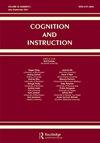超越以成人为中心和以儿童为中心的二元学习:制造情境下的联合活动教学法
IF 2.3
1区 心理学
Q2 PSYCHOLOGY, EDUCATIONAL
引用次数: 32
摘要
摘要本文认为,我们解释和发展广泛的教学实践所用的术语受到了以成人为中心和以儿童为中心的二元教育的过度约束。通过分析三年来在一个为黑人、拉丁裔和亚裔美国学生(K-5)服务的制作/修补课后项目中开发的民族志数据,我们通过(1)分析教学谈话、听力、,并体现了支持生成形式的学习和关系的援助,并挑战了以成人或儿童为中心的分类;以及(2)通过将批判性教育工作从对西方以成人为中心的模式的永久否定中历史化和解放出来,将联合活动理论化为一种教学实践,从而为明确直接援助的作用及其对教育尊严和正义问题的突出性创造了独特的依据。总之,我们主张对直接教学何时以及如何支持有意义的学习有一个更复杂的观点,并进一步描述了这种教学与更广泛的联合代际活动之间的关系。本文章由计算机程序翻译,如有差异,请以英文原文为准。
Beyond the Binary of Adult Versus Child Centered Learning: Pedagogies of Joint Activity in the Context of Making
Abstract This paper argues that the terms through which we interpret and work to develop expansive pedagogical practices are overly constrained by the binary of adult-centered versus child-centered education. Analyzing ethnographic data developed over three years in a making/tinkering afterschool program serving Black, Latinx, and Asian American students (K-5), we explicate and imagine beyond this binary by (1) analyzing key forms of pedagogical talk, listening, and embodied assistance that supported generative forms of learning and relationality and defied categorization as either adult- or child-centered; and (2) theorizing joint activity as a pedagogical practice by historicizing and unmooring the work of critical education from the perpetual negation of Western, adult-centered models, thereby creating distinct grounds for specifying the role of direct assistance and its salience for questions of educational dignity and justice. Taken together, we argue for a more complex view of when and how direct teaching can support meaningful learning, and further delineate the relationships between such teaching and a broader ethos of joint, intergenerational activity.
求助全文
通过发布文献求助,成功后即可免费获取论文全文。
去求助
来源期刊

Cognition and Instruction
Multiple-
CiteScore
7.90
自引率
12.10%
发文量
22
期刊介绍:
Among education journals, Cognition and Instruction"s distinctive niche is rigorous study of foundational issues concerning the mental, socio-cultural, and mediational processes and conditions of learning and intellectual competence. For these purposes, both “cognition” and “instruction” must be interpreted broadly. The journal preferentially attends to the “how” of learning and intellectual practices. A balance of well-reasoned theory and careful and reflective empirical technique is typical.
 求助内容:
求助内容: 应助结果提醒方式:
应助结果提醒方式:


